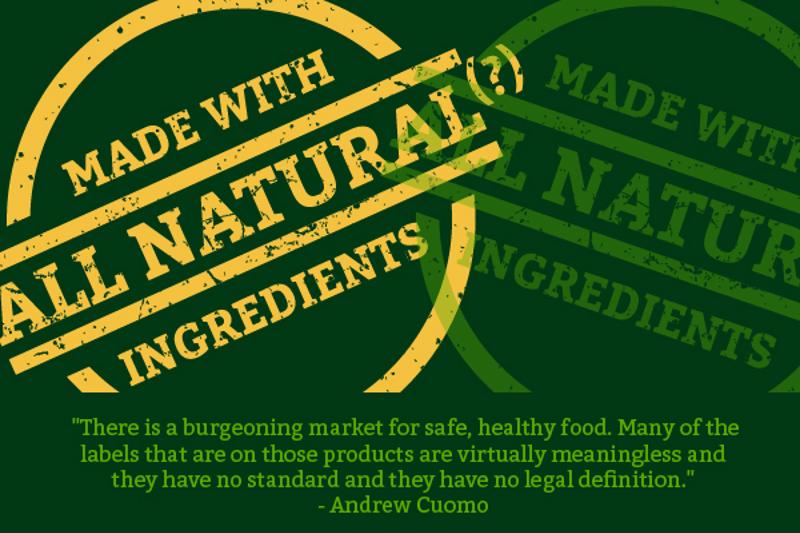The food industry has been the subject of quite a few regulatory changes lately, and the wheel hasn’t stopped yet for businesses within this sector. Late last year, the U.S. Congress repealed a bill that required meats be labeled with their country of origin, which some said unfairly discriminated against meats that were not produced in the U.S., according to Forbes. Beef and pork will no longer be labeled, whereas chicken and lamb must still bear these kinds of designations.
Recent changes
Now, lawmakers are turning their attention to the verbiage surrounding “all natural” foods, which have become popular in recent years. According to Syracuse Media Group reporter Mike McAndrew, a New York State senator, Andrew Cuomo, has made it his business to find out what foods are being labeled “all natural” and create a new strategy for determining what that term means in the context of the goods being distributed across his state.
“There is a burgeoning market for safe, healthy food,” Cuomo said during his State of the State speech. However, consumer confidence is lacking. Many of the labels that are on those products are virtually meaningless and they have no standard and they have no legal definition.”
This is leading Cuomo to parse out what it means for products to be “all natural” and instigate labeling changes that reflect his findings. And this isn’t the only issue plaguing the food industry of late. In addition to Cuomo’s fight to fix these kinds of labels, the state government in Maine is getting ready to revisit a law requiring all genetically modified organisms to be tagged, according to the Associated Press.
 What does “all natural” mean? Why should supply chain managers care?
What does “all natural” mean? Why should supply chain managers care?What does this mean for the food industry?
Cuomo’s labeling restructure and Maine’s GMO law are both indications of change within the food manufacturing and distribution sectors. These changes will need to be handled with care, and it’s going to impact supply chain managers around the U.S. as they look into possibly recalling and re-labeling their products.
“Food manufacturers need to make sure they’re taking these proposed changes into account.”
Food manufacturers need to make sure they’re taking these new laws and proposed changes into account when they’re overseeing their supply chains. Supply Chain Management solutions from Inspirage can go a long way toward helping companies keep track of where their products are coming from and what language appears on their labeling. In addition, the Inspirage ECO Cost Analysis Tool can help manufacturers determine the cost of these proposed labeling changes.
Contact Inspirage for more information today.